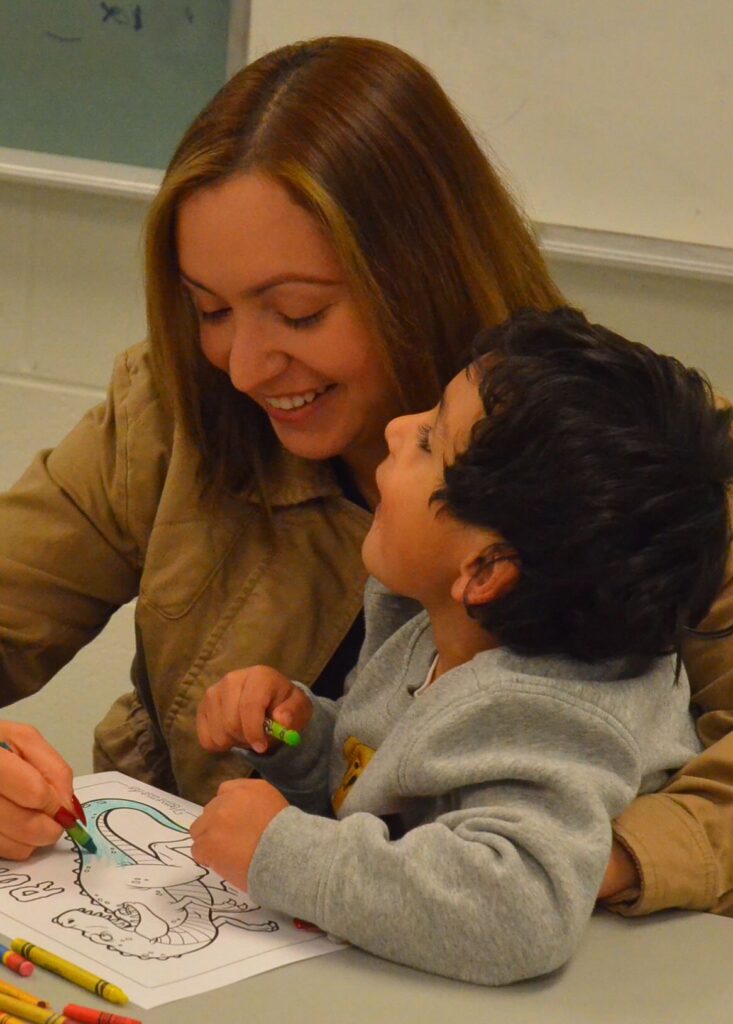Research
Our mission is to strengthen immigrant and refugee communities through participatory research, evaluation, community education, and engagement, achieved through our dedicated Fellows program.
Overview
The Center for New North Carolinians (CNNC) Fellows are community-based academics, professionals, and practitioners who undertake community-based research, advocacy, education, outreach, and practice related to refugees and immigrants in the state of North Carolina. The CNNC Fellows program began in 2001 as a small group but has now grown to a network of approximately 50 people. The mission of the group is to support the CNNC’s work by strengthening immigrant and refugee communities through participatory research, evaluation, community education and engagement. CNNC Fellows seek to center community interests and goals in these endeavors. Fellows represent several communities, organizations, agencies, and institutions of higher education.
The Fellows meet monthly during the academic year to share and network with other Fellows around immigrant research, teaching, policy, and practice interests. Fellows are also expected to join one of the subcommittees; these subcommittees set their own meeting schedule and report to the larger group. Each subcommittee will focus on a goal related to the annual theme and/or to the work of the CNNC. Fellows develop their individual projects related to the overall theme for the year in consultation with colleagues, provide feedback through a list serve, participate in related professional and academic gatherings, present on their findings at CNNC sponsored conferences at UNCG and elsewhere, sometimes submit collaborative funding proposals or jointly-authored manuscripts, and further disseminate their findings through additional venues as appropriate.
Fellows strive to assure that programs and interventions with immigrant and refugee communities are committed to full and equal engagement of participants and to practices that lead toward full and equitable integration of newcomers.
The CNNC Fellows Program is open to anyone with research, work, or interest related to immigrants and refugees in North Carolina.

- Attend and actively participate in the general CNNC Fellows monthly meetings during the academic year.
- Attendance is by invitation.
- Join a subcommittee of the general body of CNNC Fellows.
- Coordinate activities with other CNNC Fellows.
- Abide by the Fellows’ Ethics Statement: The CNNC Fellows Program’s mission is to strengthen immigrant and refugee communities through participatory research, evaluation, community education and engagement. Our activities will center the needs of the community and occur in partnership with communities as stakeholders and decision makers. In our individual and collective work, including our meetings, we aim to nurture an environment of respect, reflection, transparency, and accountability. We safeguard the confidentiality of private information shared in the meetings and aim to be attentive to issues of power and privilege that may arise in these settings.
- Receive a letter of appointment from UNCG Vice-Chancellor Terri Shelton valid for two years.
- The opportunity to represent the Fellows in meetings and conferences.
- Opportunities for networking, collaboration, and presentation of your work with other Fellows.
The CNNC Fellows Advisory Group consists of the following members:
![]() Rob Cassell [email protected]
Rob Cassell [email protected]![]() Sarah Ascienzo, Ph.D. [email protected]
Sarah Ascienzo, Ph.D. [email protected]![]() Christian Matheis, Ph.D. [email protected]
Christian Matheis, Ph.D. [email protected]![]() Jeremy Rinker, Ph.D. [email protected]
Jeremy Rinker, Ph.D. [email protected]![]() Leilani Roughton [email protected]
Leilani Roughton [email protected]